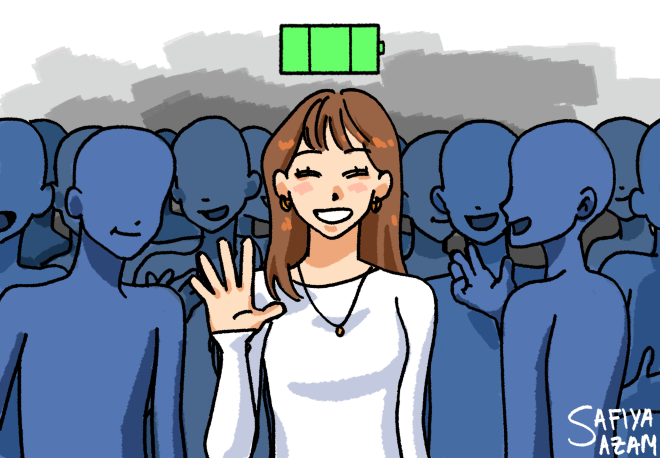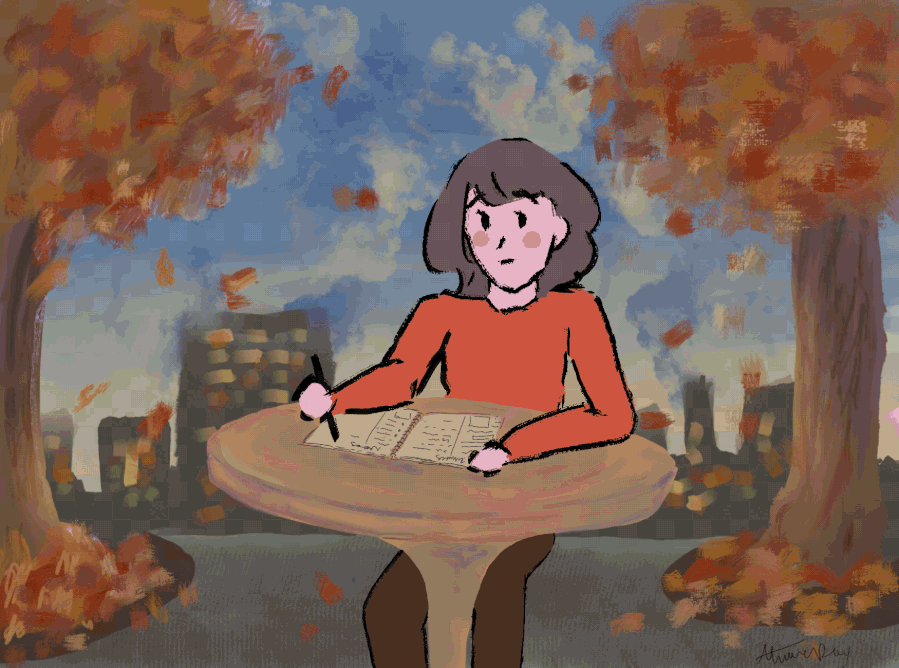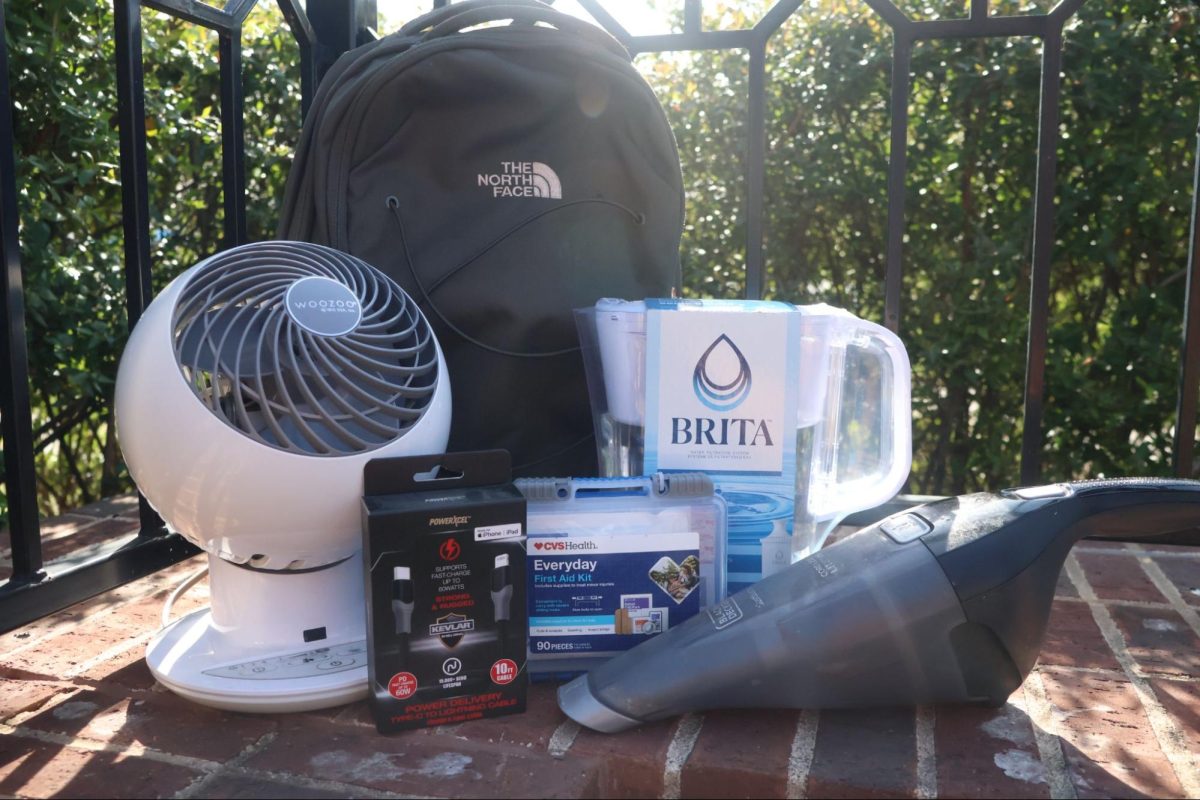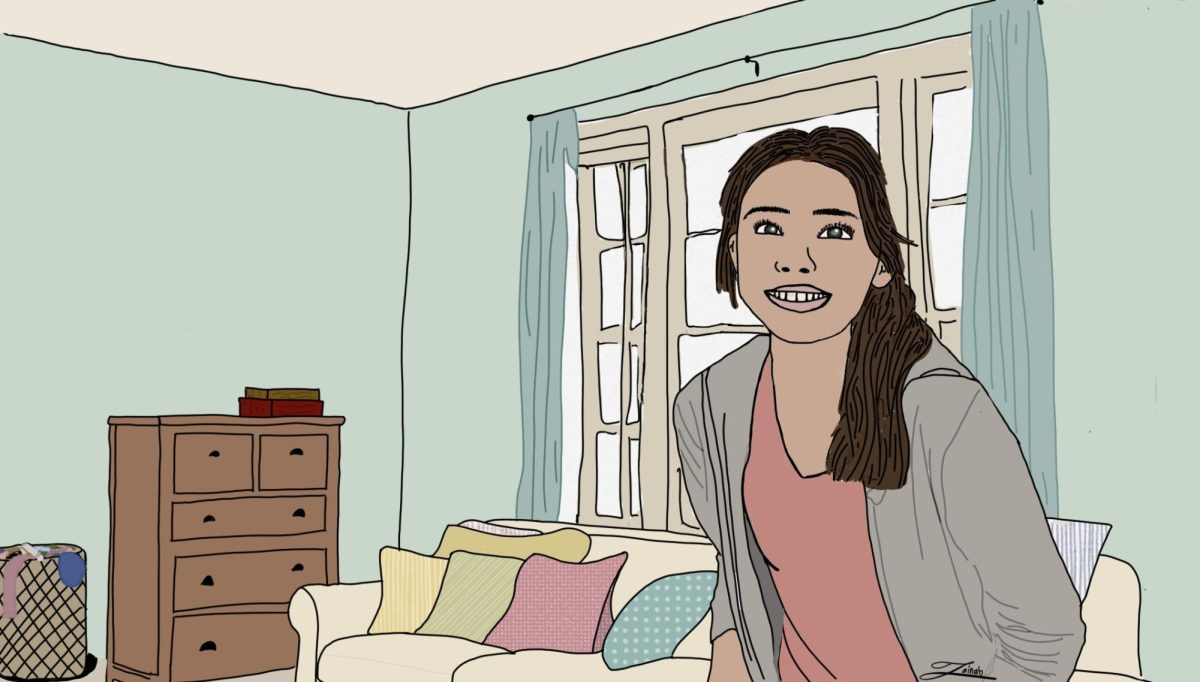At the beginning of the school year, I found myself struggling to socialize with the people around me. All I wanted to do was to be alone.
I was not the social butterfly I typically am, the one who wants to hang out or be around people all the time, and I noticed this myself but could not figure out what was going on. Though I did my best to hide it, it was obvious I did not feel like being there anymore and I was getting tired of socializing.
I have gone through periods of struggling with mental health but I typically still wanted to hang out with my friends, knowing it would distract me from the stress of my personal life, such as grades or homework.
However, this time was different.
It is important to look for the signs showing you may need some time for yourself. If you suddenly notice hanging out with friends begins to feel like a chore, it may be a signal you need to prioritize your mental health for a bit.
The first few weeks of the new school year, I struggled to adjust to my new schedule, felt exhausted after dedicating most of my time outside of school to theater and had difficulty balancing and navigating my personal relationships.
My friends would ask to hang out and I would respond with: “I would, but I really want to go home, sorry.”
This shocked them as I am typically the friend who tries to convince my introverted friends to hang out whenever they give that response. I began to prefer laying in my bed, typically in the dark, on my phone being entertained through television or social media. I involuntarily self-isolated myself from those close to me.
One day I got a text from a friend in theater asking to call. He said he had noticed I seemed down at rehearsals since the start of the school and wanted to see if everything was OK.
I explained I had just been lacking social battery and craving alone time more than usual. He said it was completely normal to feel this way. We began to dig into the concept of “social battery”. This conversation sparked curiosity of what has led me down the path of craving solitude.
When students overwork themselves, it can cause stress and overwhelmness. This leads to tiredness and fatigue in which case one may find it exhausting socializing with others. And when someone does not address the issue and delve into the reason causing self-isolation, it can create more stress.
It is also important to look at the interactions you have with the people around you. So take a look at how the conversations you have make you feel afterwards and if they are normally negative, this may make socializing feel more draining.
There are several ways to recharge a drained social battery. Taking a break from social media, reconnecting with important people in your life, surrounding yourself with the people you find it easy to talk to, getting back into activities you love like running or baking.
After some more conversations with trusted friends, I put myself first and focused on my mental and physical health. I started eating more frequently, getting more sleep and stopped constantly lying in bed on my phone. I began to journal, engaged in conversations with friends and started to listen to more uplifting music instead of slower melancholic songs. The most helpful thing is finding out what is causing you the stress making you feel drained. Surrounding myself in a positive and uplifting environment, I was naturally able to recharge my battery again. It is important to not allow stress to take control of your life and to not let go of the people or things that calm and relax you.
It is completely normal to feel a drained social battery. However it is just as, if not more, important to not allow the feeling to linger because it may feel harder to get back in rhythm with your social life. Your mental health is very important so make sure to prioritize it if you feel it is reaching a low point.
Follow Ainsley (@ainsleydwyer) and @CHSCampusNews on X.











